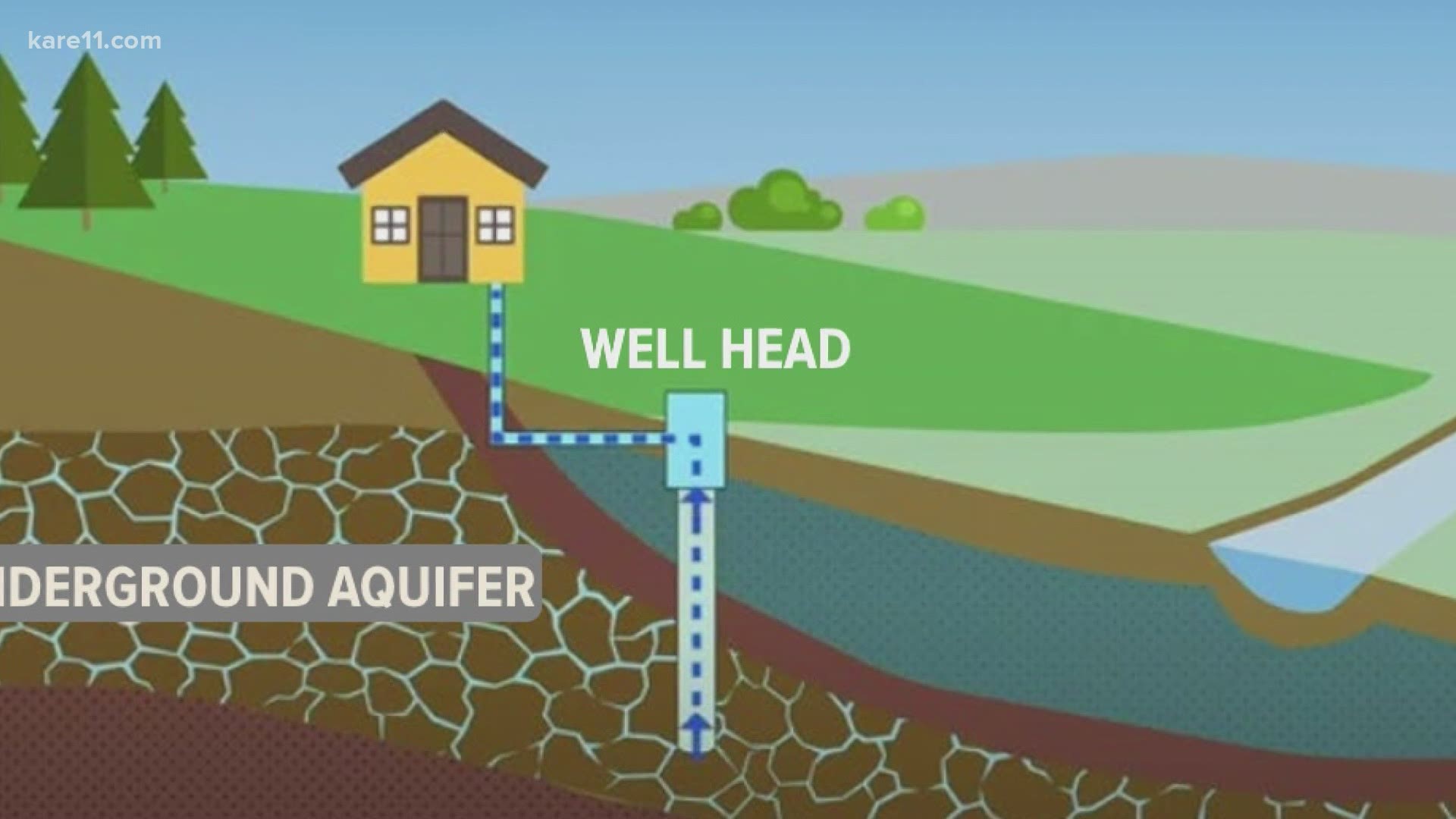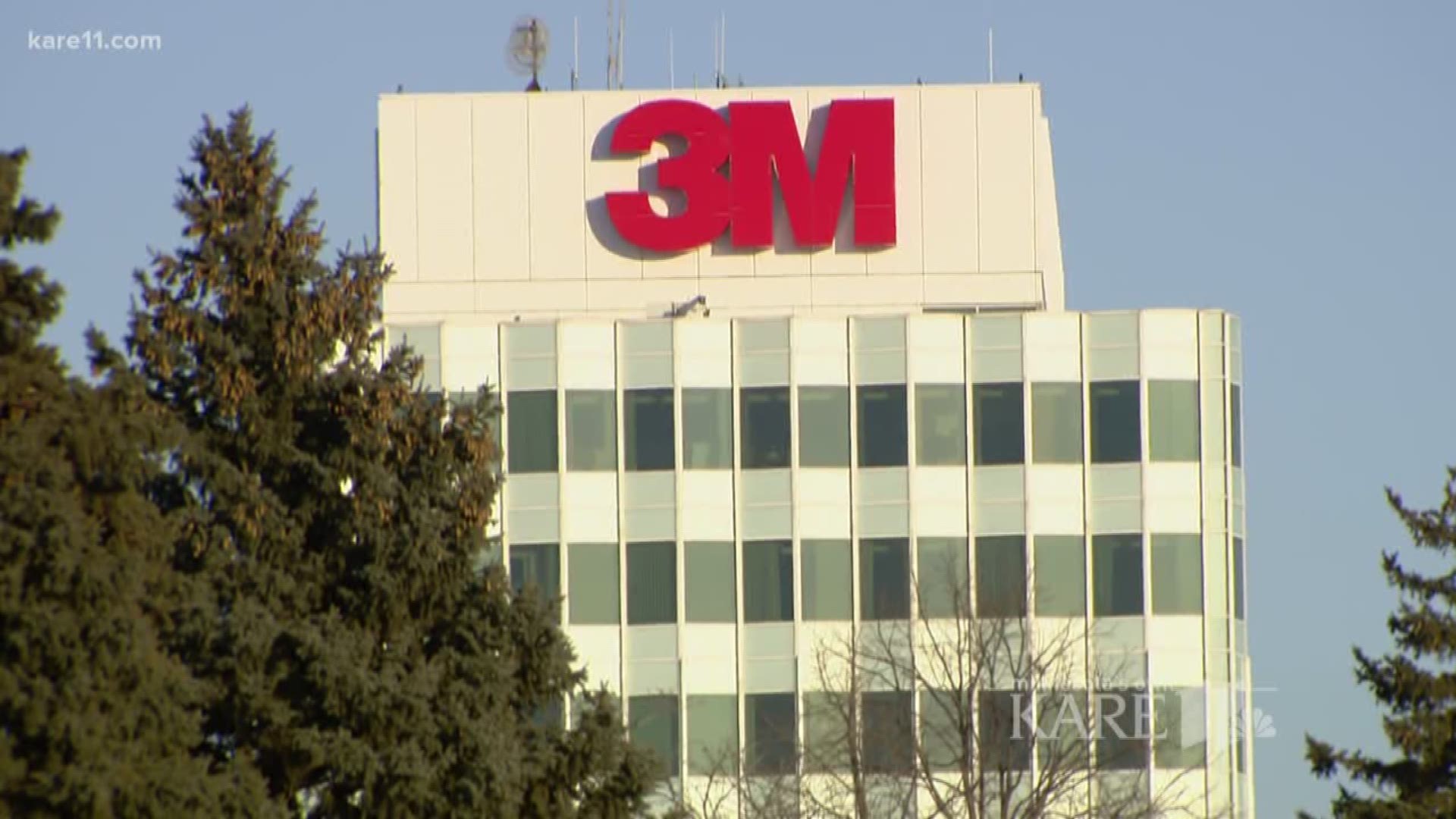MINNEAPOLIS — The Minnesota Pollution Control Agency and 3M Settlement Trust have laid out three different options for containing chemicals in drinking water in the eastern Twin Cities suburbs. All three options would cost $700 million over the long term, with money coming from the state's $850 million lawsuit settlement with 3M.
The plans would affect a 150 square mile area where ground water contains PFAS, a category of so-called "forever chemicals," persistent compounds associated with coating products such as Teflon pans and the original Scotchgard fabric treatment products.
Regulars consider PFAS levels in municipal water supplies to meet current safety standards, but the new water treatment plan would allow the cities and owners of private wells to filter water to tougher standards that may be adopted in the future. The MPCA proposals would also enable communities to extend drinking water to greater numbers of residents.
"We are providing safe drinking water right now based on the values that are protective of the most sensitive population," Kirk Koudelka, a deputy MPCA commissioner, told reporters Thursday.
"What we're doing in these options is we're trying to build resiliency for the future in case of change."
Residents can review all three drinking water options, and take part in an online survey by visiting the 3M PFC Lawsuit Settlement home page. Public meetings are also planned for Sept. 22 and Sept. 23.
Currently the MPCA issues a well water advisory when monitors detect at least one type of PFC or perfluorocarbon at a level that may be harmful to humans. The MPCA calls that level of contamination H1, or a "Health Index of 1" -- derived from a complex set of formulas that vary from one chemical to another.
Two of the options laid out Thursday would set a goal of keeping PFC contamination below half of H1, while one would keep it below one-third of H1.
MPCA's preferred option would invest more heavily upfront in well water treatment equipment, and set aside money for operations and maintenance over the long haul. Another option, which isn't preferred by MPCA, would spend part of the money connecting Oakdale and Lake Elmo to the St. Paul Water Treatment System, which uses surface water from the Mississippi River.
"We heard, when talking to the local communities, a very strong concern about moving to surface water. They're very supportive of staying on ground water versus moving to surface water," Koudelka explained.
Health effects
The chemicals have been linked to liver damage, cancers, cholesterol issues, immune system problems and fetal development effects in laboratory tests using rats. At least one study links those chemical compounds to premature births and low birth weight babies.
But the Minnesota Department of Health hasn't detected a cause and effect connection between those ailments and drinking water with minuscule levels of those chemicals.The ground water pollution experts at MDH say the current limits are set out of an abundance of caution.
"Our guidance values for water have large safety factor built into them," Jim Kelly of MDH explained.
"Even if someone was exceeding those values for some period of time we wouldn't expect health effects actually occurring in people drinking the water."
Kelly said even untreated well water has far lower levels of the 3M chemicals than the levels laboratory animals have been exposed to in experiments.


